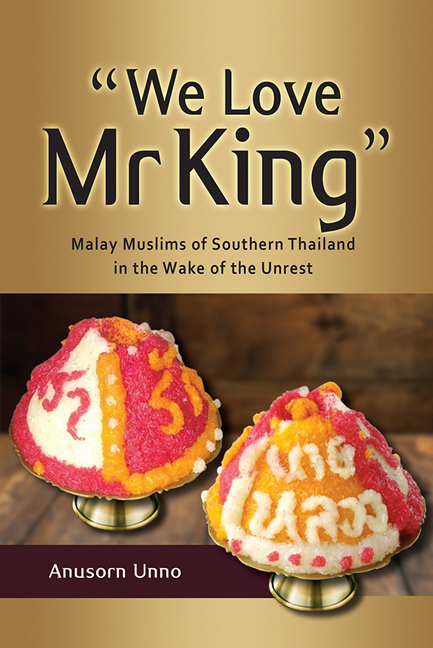Book contents
- Frontmatter
- Dedication
- Contents
- List of Tables and Figures
- Acknowledgements
- Main “Dramatis Personae”
- Introduction
- Chapter 1 Guba
- Chapter 2 Winds of Change
- Chapter 3 Subjectivities on the Rise
- Chapter 4 The Clashes
- Chapter 5 Living Lives with Multiple Subjectivities
- Chapter 6 Engaging with the Sovereigns
- Conclusion: Sovereignty in Crisis
- Bibliography
- Index
- About the Author
Chapter 2 - Winds of Change
Published online by Cambridge University Press: 12 February 2019
- Frontmatter
- Dedication
- Contents
- List of Tables and Figures
- Acknowledgements
- Main “Dramatis Personae”
- Introduction
- Chapter 1 Guba
- Chapter 2 Winds of Change
- Chapter 3 Subjectivities on the Rise
- Chapter 4 The Clashes
- Chapter 5 Living Lives with Multiple Subjectivities
- Chapter 6 Engaging with the Sovereigns
- Conclusion: Sovereignty in Crisis
- Bibliography
- Index
- About the Author
Summary
The separatist movements in Thailand's Deep South, which reached their peak in the late 1960s and 1970s, started to decline in the 1980s (Forbes 1982, p. 1061). On the one hand, the decline was brought about by changes in central government policy towards the region. The forced assimilation policy of the Phibun government was discontinued, Malays’ cultural rights and religious freedoms were encouraged, many separatists were offered amnesty, and a “development as security” approach was implemented in the region. On the other hand, the decline also resulted from conflicts and ruptures within the separatist movements themselves and from the movements’ failure to gain the broad support of the local Malay population (Croissant 2005, p. 23). This led observers to describe the separatist movements as “waning” (Rabasa 2003, p. 55) and “relatively quiet” (Tan 2003, p. 109). However, the unrest was resurrected around the turn of the millennium. A total of 1,975 violent incidents were recorded between 1993 and the end of November 2004. Of these, 21 per cent occurred before 2001, and 79 per cent took place from 2001 onward (Croissant 2005, p. 24). On 4 January 2004, about thirty armed men stormed Krom Luang Narathiwat Ratchanakarin Military Camp in Narathiwat Province, stealing 300 weapons and killing four soldiers. Incidents that occurred at Krue Se Mosque in Pattani and in Tak Bai, Narathiwat on 28 April and 25 October 2004, killing thirty-two and eighty-five Malay Muslims, respectively, aggravated the situation. These incidents combine to mark the year 2004 as the beginning of a new round, or “dramatic upsurge” (Askew and Helbardt 2012, p. 779), of unrest in the Deep South, which from 2004 to 2016 claimed 6,850 lives and 12,547 wounded and still goes on unabated (Deep South Incident Database 2016; Srisompob and Supaporn 2016).
Guba has not been immune to the resurrection of southern unrest. Drive-by shootings, roadside bombings, arson, and the distribution of threatening leaflets have not been uncommon to the settlement. However, Guba's specificity — its division into three different parts (northern, central, and southern), the “wildness” of its recent past, and its cordial memories and bonds with the Raman Sultanate demonstrated in the previous chapter — differentiates the ways in which the unrest has played out in the area.
- Type
- Chapter
- Information
- "We Love Mr King"malay Muslims of Southern Thailand in the Wake of the Unrest, pp. 33 - 66Publisher: ISEAS–Yusof Ishak InstitutePrint publication year: 2018



